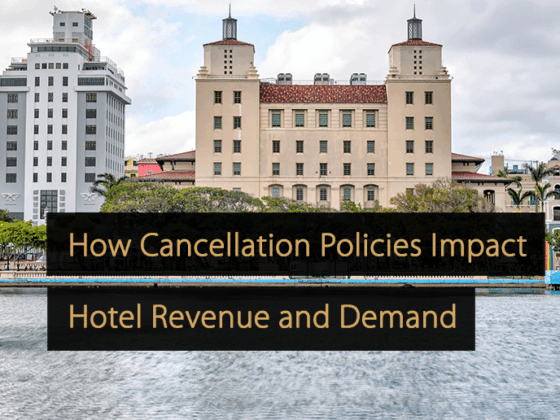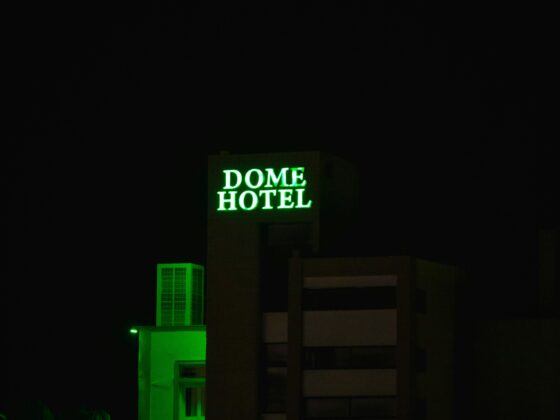
Takeaways
Human expertise complements technology, maximizing performance through balanced oversight and trust.
Data-driven revenue management prevents costly blind spots by connecting property and revenue systems.
Accurate forecasting enables proactive strategies, capturing demand surges and sustaining hotel profitability.
Segmentation and personalization ensure tailored pricing, boosting guest satisfaction and loyalty.
Predictive analytics replaces guesswork with confident, data-backed revenue decisions.
In hospitality, revenue management has evolved from a tactical function to a strategic driver of profitability. Yet, many hotels still operate with a critical blind spot: they’re making decisions without fully leveraging the data available to them. And when you don’t see the whole picture, you miss opportunities, not just to price better, but to perform better.
Often this isn’t caused by a lack of effort or expertise. It’s caused by a lack of visibility and connectivity between siloed systems. Without data flowing between revenue management and property management tools, hotels are flying blind in a landscape that demands precision, agility, and foresight.
Here are the five common areas where hotels lose revenue due to this blind spot and how data can illuminate the path to smarter decisions.
1. Missing opportunities in uncertain times
Every hotelier has experienced the frustration of realizing, too late, that demand was higher than expected. Whether it’s a local festival, a sudden surge in group bookings, or a competitor closing temporarily, these moments of high demand are goldmines. But without accurate forecasting and real-time data, they often go unnoticed or under-leveraged until the opportunity has passed.

Advanced revenue management systems continuously monitor market signals, booking pace, and external demand drivers. They help hotels anticipate spikes before they happen, enabling proactive rate adjustments and inventory controls. This is done in a continuous cycle of fine-tuning and optimization, so hoteliers aren’t caught flat-footed and handcuffed by strategies fit for yesterday’s data.
The cost of missing these moments isn’t just lost revenue; it’s lost momentum. Busy periods are when hotels build profitability, fill ancillary services, and create lasting guest impressions. Seeing them clearly is essential.
And of course, this ability to forecast accurately and adapt quickly isn’t just an advantage for high season and periods of compression. Smarter, adaptive pricing strategies help to fine-tune and ensure your approach will only discount to the level needed to capture the available demand. In a business environment with plenty of question marks, this is a critical capability for maintaining resiliency.
2. Pricing that confuses customers
Inconsistent pricing doesn’t just hurt revenue; it hurts trust. Guests notice when rates fluctuate without clear logic. They compare across channels, check historical prices, and talk to each other. If your pricing feels erratic or unfair, they’ll look elsewhere.
This confusion often stems from manual rate setting, reactive decision-making, or rigid systems that are overly reliant on pricing in response to demand data. Without a unified, data-driven approach, pricing becomes fragmented and unpredictable.
Data-driven revenue management brings clarity. It ensures pricing reflects actual demand, competitive positioning, and guest value. It aligns rates across channels and segments, creating a coherent pricing strategy that guests can understand and trust.
When pricing makes sense, guests are more likely to book, return, and recommend.
3. Ignoring different types of customers
Not all guests are created equal. Business travellers book differently from leisure guests. Families have different needs than solo adventurers. Long-stay guests behave differently from weekenders. Treating them all the same is a missed opportunity.
Without data, hotels often apply a one-size-fits-all strategy. They set blanket rates, offer generic packages, and miss the nuances of guest behaviour.
Data-driven revenue management enables segmentation. It helps hotels understand who their guests are, what they value, and how they book. It allows for tailored pricing, personalized offers, and targeted marketing. This not only boosts conversions but also enhances the guest experience.
In a world where personalization drives loyalty, ignoring guest differences is a costly mistake.
4. Guessing instead of knowing
Revenue management used to be about intuition. Experienced managers would rely on gut feel, historical averages, and anecdotal evidence. But today’s market is too complex, too fast-moving, and too competitive for guesswork.
Guessing leads to volatility. It creates pricing that’s out of sync with demand. It causes missed opportunities and overcorrections. And it erodes confidence, both internally and externally.
Data-driven revenue management replaces guesswork with intelligence. It uses predictive analytics, demand modeling, and competitive benchmarking to guide decisions. It provides visibility into future trends, booking behavior, and market shifts.
When you know instead of guessing, you make decisions with confidence. You optimize performance, reduce risk, and build a foundation for sustainable growth.
5. Keeping the “Human in the loop”
It’s true that with sophisticated systems in place, frequent or heavy-handed human overrides can undermine performance. But at the same time, human experience and judgment are valuable; after all, a revenue management system only knows as much as the data tells it. Both human and machine thrive when they complement their strengths to ensure the day-to-day is on track.
Frequent overrides or forced adherence to rules introduce bias. They create inconsistency. They reduce the effectiveness of automated systems and lead to fragmented strategies. And often, they’re based on fear, fear of losing control, fear of missing out, fear of change.
The best revenue managers use data as a compass. They trust the system, validate its recommendations, and intervene when necessary. They understand that smart systems are designed to learn, adapt, and improve over time.
Empowering teams to work with data, not against it, is key to unlocking its full potential.
Seeing the full picture
The partnership between IDeaS and Shiji is built on a shared belief: that data is the key to unlocking hidden revenue. Together, we’re helping hotels move from reactive to proactive, from fragmented to connected, and from guessing to knowing.
Data-driven revenue management isn’t just about technology; it’s about transformation. It’s about seeing clearly, acting confidently, and growing intelligently. It’s about turning blind spots into breakthroughs.
The revenue blind spot is real for many hospitality providers, but it’s also avoidable. By embracing data-driven strategies, hotels can uncover opportunities they didn’t even know they were missing. They can optimize performance, enhance guest satisfaction, and build resilience in an unpredictable world.
When property management platforms connect seamlessly with revenue management systems, hotels can align pricing strategies with guest needs more effectively. The ability to combine operational insights with demand forecasting ensures that the right room, at the right price, reaches the right guest, ultimately enhancing both profitability and satisfaction.
For more on why investing in connected technology systems is more important than ever, check out IDeaS’ latest, “Unlocking Revenue Potential: The Need for Strategic Investment.”






